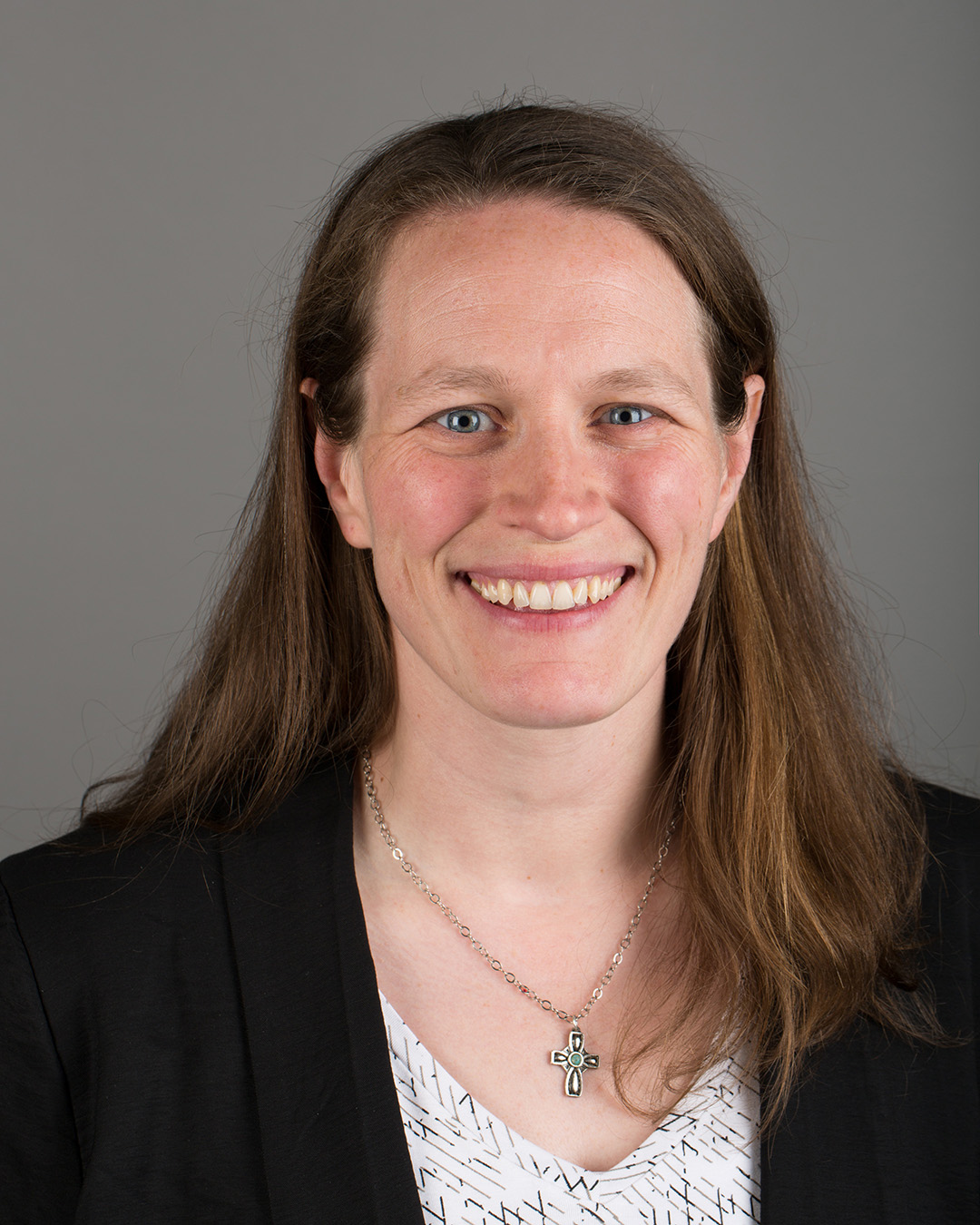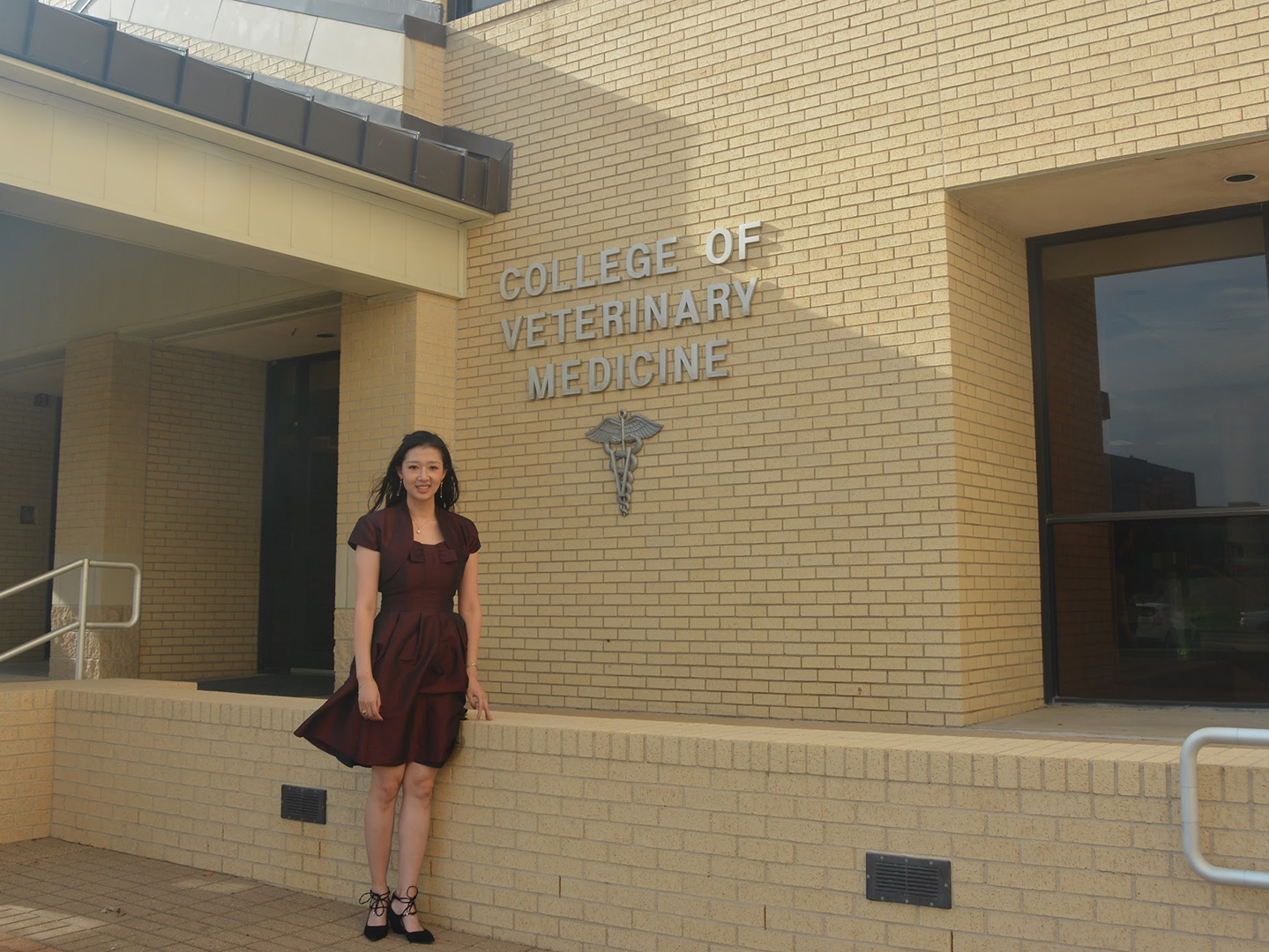CVMBS Postdocs Earn Campus-Wide Poster Presentation Awards
Two postdoctoral researchers from the Texas A&M College of Veterinary Medicine & Biomedical Sciences (CVMBS) earned “Outstanding Poster Presentation” awards at the fourth annual Texas A&M Postdoctoral Research Symposium this fall.
Rebecca Legere, Ph.D., and Meichen Wang, Ph.D., took home first and third place, respectively, in the campus-wide virtual competition on Sept. 23.
The symposium was organized by the CVMBS Postdoctoral Association (PDA), the Texas A&M Postdoctoral Association, and the Health Science Center (HSC) Postdoctoral Association. It featured more than 40 postdoctoral participants presenting their research to an audience of 162 fellow postdocs, faculty members, and staff from 17 colleges and schools.
“The CVMBS PDA is very proud to have had such a strong representation of postdoctoral researchers during this symposium and would like to congratulate Dr. Legere and Dr. Wang for their outstanding achievements,” said Floris Droees, DVM (Hon), president of the CVMBS PDA.
Rebecca Legere

Legere received first place in the “Outstanding Poster Presentation” competition for her poster titled “It’s OK to Go Naked: Transfection of Respiratory Epithelium with Aerosolized mRNA.”
Her research was focused on studying the use of therapeutic messenger RNA (mRNA), which is taken up by cells in a process called transfection and will be used to create antibodies, as a method for fighting disease.
“This platform holds great promise in human and veterinary medicine, especially because aerosolized delivery to the lungs can deliver the mRNA straight to the respiratory tract and generate antibodies right there at the site of inhaled pathogens,” Legere said.
Traditionally, researchers have used chemical carriers called transfection agents to deliver the mRNA and protect it from degradation, but they are expensive and increase the risk of toxicity. Legere’s team found that naked mRNA, or mRNA delivered without a transfection agent, was just as safe and effective for transfection in the lungs of horses.
“Our findings of safe and effective transfection of the respiratory epithelium via aerosolization without the need for a transfection agent indicate that it is possible to reduce the costs and complexity of delivering mRNA to the upper and lower respiratory tract,” Legere said. “We are actively adapting this mRNA platform to generate functional antibodies and other clinically significant proteins for use in vaccines and therapeutics to benefit human and animal health,” she said.
“I was truly honored to receive this award, but it was definitely a team effort, especially made possible by my incredible mentor Dr. Noah Cohen, as well as the rest of our team at the Equine Infectious Disease Lab, experts in the Imaging Analysis Lab, and key collaborators at the Baylor College of Medicine,” Legere said.
Meichen Wang

Wang received third place in the “Outstanding Poster Presentation” competition for her poster titled “Potential Applications of Clay-Based Therapy to Reduce Human and Animal Exposures from Polychlorinated Biphenyls.”
Her research aims to reduce the dangerous impacts of hazardous environmental chemicals frequently found as contaminants in food and drinking water following a natural or man-made disaster.
“My research has focused on the development and characterization of broad-acting sorbent materials that are ‘generally recognized as safe’ for short-term consumption and can tightly bind and neutralize hazardous environmental toxins in the stomach and intestines, thus decreasing their blood and tissue exposures,” Wang said. “In ongoing research, we have developed acidic clays that are more effective in their capacity to bind toxins and toxicants than other materials that we have tested.”
Her work has led to a non-provisional patent and a worldwide exclusive license granted through Texas A&M University. Small capsules or tablets, snacks, vitamin supplements, and flavored water containing her team’s novel sorbent materials can be administered to humans and animals before each meal to significantly reduce toxin exposures during a disaster.
“I want to give a big thank you to my mentor, Dr. Timothy Phillips, for guiding and encouraging me along the way and to the College of Veterinary Medicine & Biomedical Sciences, Dr. Robert Burghardt, and the Department of Veterinary Integrative Biosciences for their support,” Wang said.
“I greatly enjoy being part of Dr. Phillips’ laboratory and focusing my research on this project,” she said. “I have faith that the findings from this research project will be impactful for both human and animal health. This award is an encouragement that you can still do a good job in very difficult times.”
The CVMBS’ Support for the Symposium
The CVMBS’ Office for Research & Graduate Studies provided administrative support at the event and Dr. Robert Burghardt, the CVMBS associate dean for Research & Graduate Studies, shared opening remarks at the beginning of the symposium.
“The three Postdoctoral Associations could not have organized this without the excellent leadership and support over the last months from Dr. Andreea Trache (faculty adviser for the Texas A&M PDA), Dr. Ashley Gustafson Seabury (program manager for the CVMBS Research & Graduate Studies), Stacy DeLeon (administrator of Postdoctoral Affairs for the HSC), Shannon Eyre (senior administrative coordinator of the Texas A&M Division of Research), Mona Somers (executive assistant of the Office of the Vice President of Research), and several volunteer members of the three PDAs,” Droees said. “We would like to thank all of them for their continued efforts.”
###
Story by Megan Myers, CVMBS Communications
For more information about the Texas A&M College of Veterinary Medicine & Biomedical Sciences, please visit our website at vetmed.tamu.edu or join us on Facebook, Instagram, and Twitter.
Contact Information: Jennifer Gauntt, Director of CVMBS Communications, Texas A&M College of Veterinary Medicine & Biomedical Sciences; jgauntt@cvm.tamu.edu; 979-862-4216


